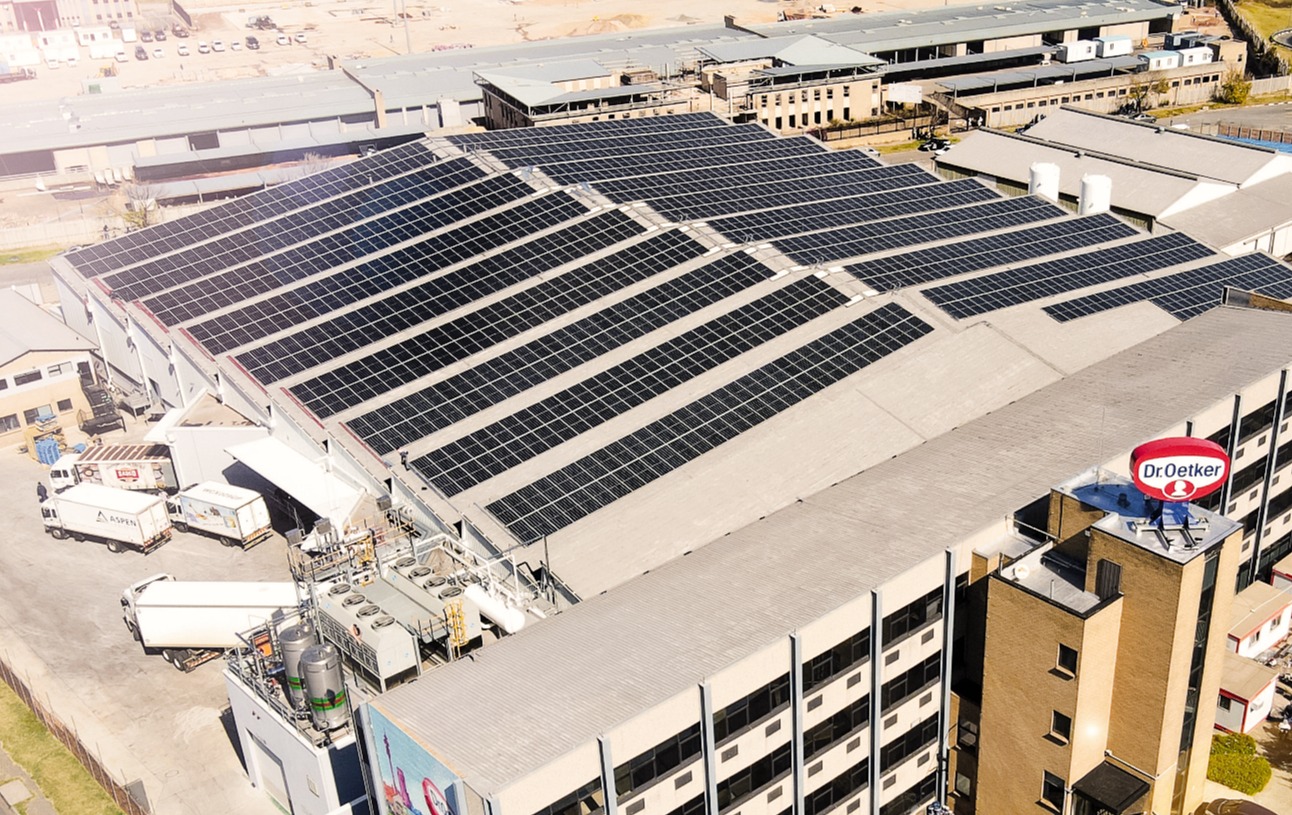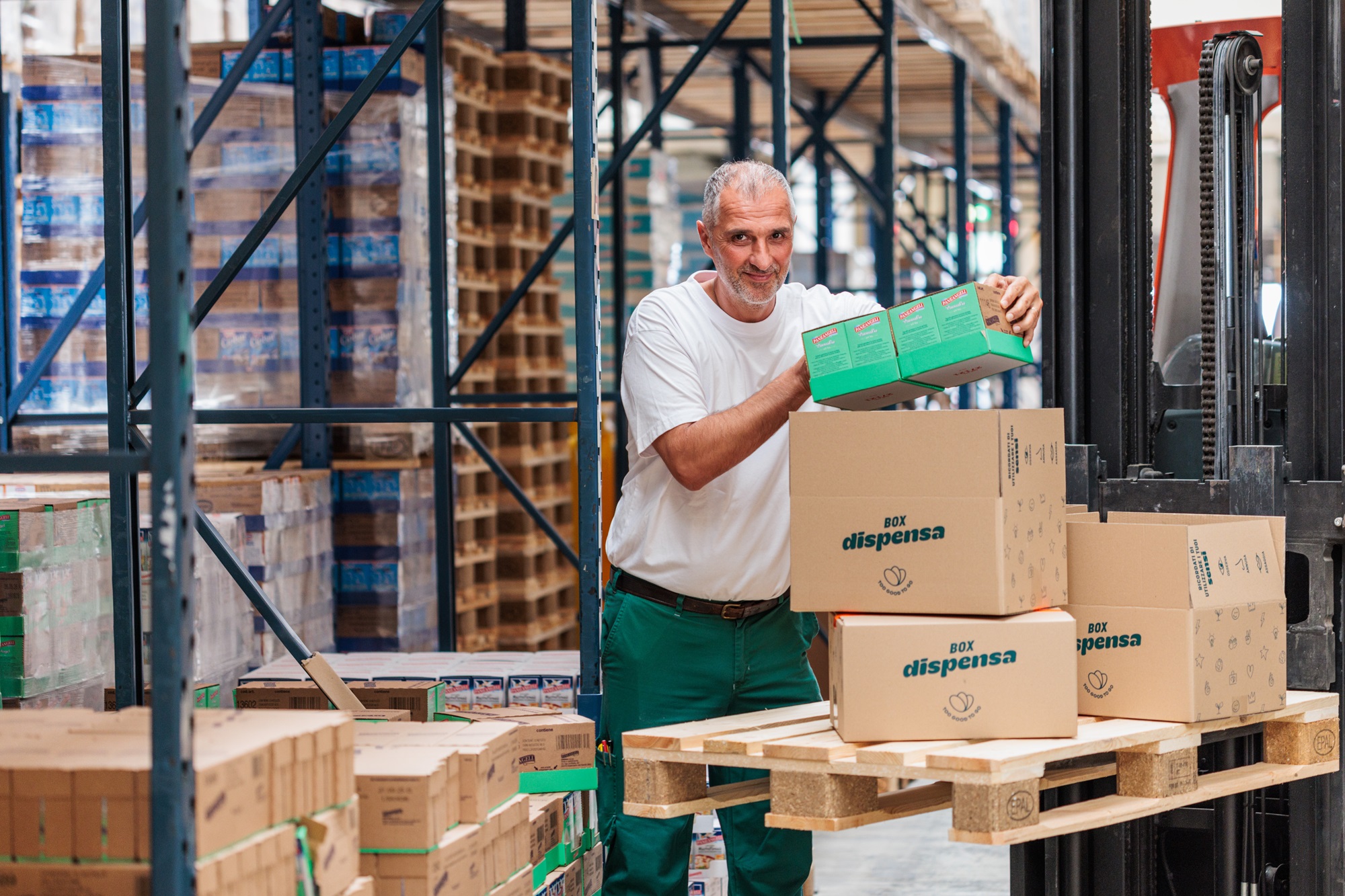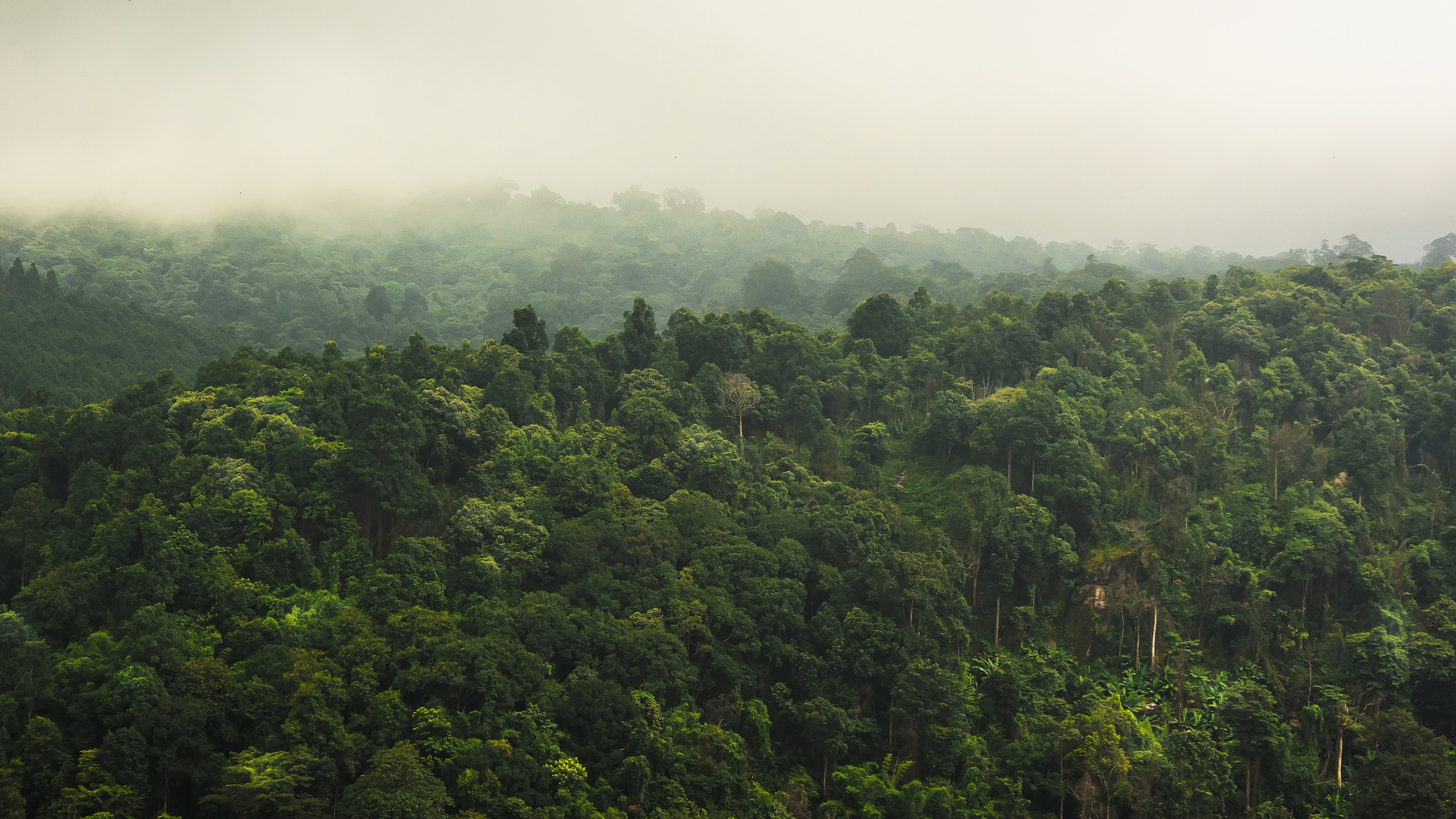Our World: Environment & Society
For future generations
Uniting to protect our planet.
We’re doing our part to protect the climate. By using natural resources responsibly, we aim to preserve them for future generations. Every day, we work to not only maintain but ideally improve our living conditions—by reducing CO₂ emissions, packaging and food waste, by using more sustainable raw materials, and by building supply chains that do not contribute to deforestation.
Olive tree at our plant in Turkey – we plant one tree per employee here on the plant premises.
Regenerative activities
Engaging in regenerative action means not only permanently protecting the world for people and animals, but also restoring their livelihoods.
Regenerative agriculture
Dr. Oetker is currently working on a project to promote various forms of regenerative agriculture and to source raw materials from regenerative agriculture. In its first phase, the project is focusing on the raw materials wheat and grain as well as sugar (beet). Corresponding pilot projects are due to be launched in 2024.
Step by step for more climate protection
We have joined the Science Based Targets initiative (SBTi) and are therefore committed to science-based climate targets and continuous reporting in accordance with the criteria of this globally recognized network. By 2030, we want to reduce our carbon footprint by a total of 35% in order to be climate-neutral in all indirect areas of influence by 2050.
Science Based Targets initiative
The SBTi is a joint initiative of the global non-profit organization Carbon Disclosure Project (CDP), the UN Global Compact, the World Resources Institute (WRI) and the World Wide Fund for Nature (WWF). It was launched in 2015 to help companies set emissions reduction targets in line with current climate science and the goals of the Paris Agreement to limit global warming to 1.5 degrees above pre-industrial levels. We have joined the SBTi and are committed to science-based climate targets and continuous reporting in accordance with the criteria of the globally recognized network.

Generating renewable energy ourselves: solar system on our production facility in South Africa.
Fossil-free production
Time to rethink: In the future, we aim to produce our pizzas, cakes and desserts—from baking to freezing, filling to storing—using only renewable energy, without fossil fuels. Our goal is for our pizzas to be produced entirely with renewable energy by 2030. The transformation of our food production sites will follow later. Currently, all the electricity used in our facilities comes from renewable sources. In the future, we also aim to completely eliminate the use of gas.
Less waste, less packaging
By 2030, our goal is for all of our packaging to be recyclable, reusable or compostable. While ensuring the best protection of our products, we will reduce, eliminate or reuse packaging. This goal will also align with our CO₂ reduction roadmap in line with our SBTi commitment. In the future, we aim to process every piece of packaging to keep its raw materials in the loop and ultimately have it recycled to the same high standard
Our colleagues in packaging design are improving the recyclability of our products.
Better recycling
As much paper as possible, as little recyclable packaging material as possible. These are our basic principles when it comes to recycling, which we also promote in overarching initiatives.
Leading by example.
As little packaging as possible, as little plastic as possible, as much recyclability as possible - these are the points that we have improved in the following examples. And we are constantly working on new ones.
Now also recyclable!
The popular four-chamber cups for our decor products are increasingly no longer made from polystyrene, i.e. PS, but from polypropylene, i.e. PP, and can therefore be recycled. At the same time, we have significantly reduced the weight of the packaging.
Desserts without an extra lid
Since 2022, we have been removing the snap-on lids from our Löffelglück cream pudding, Löffelglück semolina pudding, Löffelglück fruit jelly and our high protein pudding in 500g and 400g tubs. This means that we save at least 115 tons of plastic every year for the German market alone, which equates to around 40 truckloads.
For our refined products, such as crème fraîche, all 125g and 150g tubs will also no longer have snap-on lids from 2023.
Everything made of cardboard
The packaging for Dr. Oetker Germany's Happy Birthday candles is now made entirely of cardboard - and can be recycled via waste paper. This eliminates the need for the non-recyclable plastic viewing window and the polystyrene block in which the candles were previously inserted.
Fully recyclable
Dr. Oetker Professional in India has recently switched the packaging for Veg Mayonnaise For Coleslaw to fully recyclable mono-material. We estimate that this will enable us to avoid 30 tons of plastic waste per year.
Food does not belong in the trash.
We are committed to ensuring that as little food as possible is thrown away. To achieve this, we are constantly improving our use of raw materials and our cooperation with suppliers and retailers. We also review our product concepts.

A quarter less: this is how much food waste we will reduce in our production facilities and warehouses worldwide by 2025. To achieve this, we will measure raw material losses in all international plants with pinpoint accuracy and use this information to develop measures that improve the balance across all locations. This harmonization and exchange alone will enable us to achieve our stated target at our pizza plants as early as 2022. In the next step, we will set ourselves new, ambitious targets and continue to pursue them.
Responsibility - from the beginning to the end of our supply chain
Whether sugar or salt, meat or vegetables, cocoa or vanilla: raw materials are at the heart of our products. And purchasing them is part of our social and ecological responsibility.
Protecting forests and other ecosystems

Deforestation for agricultural land is a global problem. Forests are not only gigantic carbon reservoirs and filter our air. They are also crucial for preserving biodiversity and provide important habitats for humans and animals. At Dr. Oetker, we want to establish supply chains in which no deforestation or conversion of forests takes place by the end of 2025.
Acting without deforestation and conversion
When defining “forest” and “deforestation”, we are guided by the criteria of the Accountability Framework Initiative (AFI). It also sets the so-called “cut-off date” at 01.01.2020 - the date after which no deforestation may have taken place on areas on which raw materials for Dr. Oetker are produced. Why is “freedom from conversion” also important to us? We do not want forests to be cut down for the manufacture of our products - nor do we want other ecosystems such as wetlands, savannahs and grasslands to be converted into agricultural areas.
Risk product groups first
In order to make rapid progress, we are initially focusing on commodities with a particularly high risk of deforestation: These include soy, palm oil, cocoa, cane sugar from Brazil and paper-based packaging. But they also include meat, dairy products and gelatine - as these require large areas of land for the cultivation of animal feed as well as pastureland. For these high-risk product groups, we develop individual solutions with our suppliers, define new purchasing standards and monitor compliance with them.
Improving social and ecological conditions
In recent years, we have already dealt intensively with human rights and environmental due diligence obligations in the supply chain. We therefore already purchase almost exclusively certified raw materials such as cocoa or palm oil that are critical in this regard. Since 2023, we have also been implementing the German Supply Chain Due Diligence Act and are monitoring risks of human rights violations and environmental breaches even more systematically and regularly. Where risks exist, we will implement appropriate preventive and remedial measures and report on the process annually. Furthermore, our Supplier Code of Conduct was updated and republished as a first step.
Our promise: By 2023, 20 percent of the vanilla we use will be certified sustainable. We are already a member of the Sustainable Vanille Initiative (SVI) in order to improve the sustainability and quality of vanilla production in the long term, particularly in Madagascar, the largest vanilla-growing region.
For more animal welfare and environmental protection
We want to offer more vegetarian and vegan products - including as part of our traditional product ranges. At the same time, we are working to improve animal husbandry, catching, slaughtering and transportation for the products we purchase.
For example, we already only buy certified tuna and define higher standards for our chicken meat - so we are improving step by step.
We cooperate with various initiatives to achieve higher standards of animal welfare and environmental protection:
Since 2016, a portion of our sourced chicken has met the criteria of the European Chicken Commitment. This means slower rearing, improved air quality, more daylight, and more space for the animals. In 2022, we exclusively used chicken adhering to ECC criteria for Ristorante Pollo production at our facilities in Germany and Poland. Unfortunately, in 2023, we were only able to use conventional chicken meat due to supply issues. In 2024, we use chicken meat that meets the ECC criteria as standard for our Ristorante Pollo again. Until the end of 2025, we will exclusively be using this chicken on our pizzas. Our Ristorante Pollo is sold in the Netherlands, Norway, Belgium, Spain, Finland, Portugal, Sweden, the Czech Republic, Slovakia, Romania, Lithuania, the United Kingdom, Ireland and Canada.